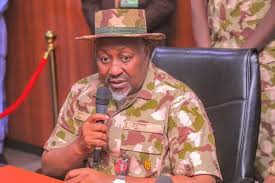Nigeria is one of the most linguistically diverse countries in the world having over 500 spoken languages with English as the official language. However, the local dialects are mostly spoken in rural areas and among people with low education. Out of the existing 500 languages in the nation, Hausa, Igbo and Yoruba are the most spoken dialects.
Thus, the recent approval by the federal government for the use of the mother tongue in elementary schools across the nation is a setback to the already comatose education sector in the country. Though English is the official language, many Nigerians are still battling with poor communication techniques.
Majority of Nigerians including pupils, students and even university graduates can’t write or speak good English despite the training they have been going through right from the elementary level to the degree level. Imagine a person that can’t speak good English after undergoing 16 years of training, from primary 1-6, form 1-6, and level 1-4! What would you expect from someone who had never undergone such training from day one?
The already existing protocols and policies for instructing pupils using the English Language are in order. It assists the pupils and students to acquire good communication skills and have exposure while dealing with issues of national importance. The federal government should realise that the new policy to instruct pupils using their mother tongue is a setback to the nation’s education sector.
However, though the government reintroduced the policy in its quest to preserve our cultures, the national heritage and their characteristics, it is not good enough to adopt such a policy in a multifaceted nation like Nigeria where regional, religious and cultural differences are the major concerns. How could one communicate properly in the English language when he/she lacks the requisite foundation?
Therefore, adopting the mother tongue as a way of instructing pupils in the nation’s primary schools is a major setback to education. The policy is indeed retrogressive, considering how students and graduates are battling with poor English communication.
Thus, since Nigeria is multi-ethnic and multi-religious, English language should be maintained in our schools as a medium of instruction. This is to say if the nation’s populace needs inclusive and decent governance of affairs, the government should jettison the so-called mother tongue instruction in our primary schools.
Though Hausa, Igbo and Yoruba are the majority tribes they should not be a medium of instruction since the aim is to have inclusive governance among our teeming population.
As such, it is good for the government to drop such an obnoxious and retrogressive policy as it would do more harm than good to the education sector.
Jemimah Othniel Wakili,
Department of Mass Communication,
University of Maiduguri




